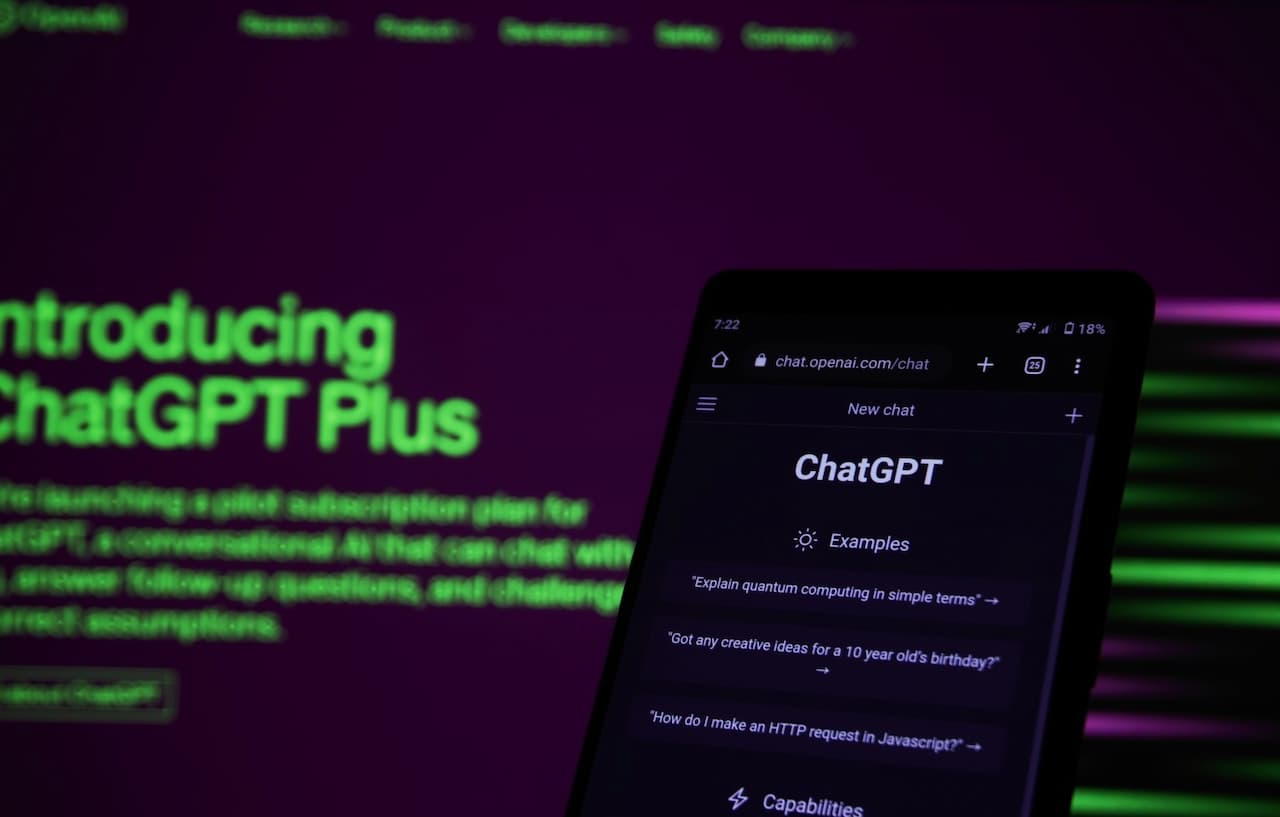In the world of mobile applications, one of the key technologies reshaping our perception of smartphone capabilities is Artificial Intelligence (AI). The integration of AI into mobile applications brings forth numerous advantages, enhancing user experiences, increasing application efficiency, and expanding functionality. Let’s delve into the benefits of AI and the various domains where it finds application.
Application of Artificial Intelligence in Mobile Applications:
- Analysis and Prediction of User Behavior. AI enables applications to analyze user behavior data, predicting user preferences and needs. This facilitates content personalization and the delivery of more relevant recommendations.
- Voice Assistants and Natural Language Processing. Voice assistants like Apple’s Siri, Google Assistant, and Amazon Alexa employ AI for voice command recognition and understanding. They can perform various tasks, from information retrieval to smart device control.
- Image Processing and Object Recognition. AI is capable of analyzing images and recognizing objects within them. This is utilized in mobile applications for facial recognition, bar code scanning, photo filters, and many other tasks.
- Enhancing User Experience through Personification. Mobile apps use AI to analyze user behavior data, providing personalized recommendations. This can include music, movies, news, or products in online stores.
Advantages of Using AI
Enhancing Application Efficiency
Artificial Intelligence contributes to the automation of many tasks, making applications more efficient. For instance, AI can optimize data processing and resource management processes.
Improving Recommendations and Advertising
AI can analyze vast amounts of data and identify patterns, resulting in more accurate user recommendations. Precise recommendations increase the likelihood of purchases and user engagement.
Automating Routine Tasks
Numerous routine tasks, such as responding to frequently asked questions or processing orders, can be automated through AI. This reduces the workload on staff and increases application responsiveness.
Enhancing Analytics and Forecasting
AI aids in data analysis and trend forecasting. In business, this can be used for data-driven decision-making and determining optimal strategies.
Artificial Intelligence also plays a vital role in ensuring the security of mobile applications. AI systems can analyze user activities and detect anomalies, helping to identify unauthorized access attempts and prevent threats.
Challenges and Future Directions of AI Usage in Mobile Applications
Algorithm Training. AI requires a large volume of data for training. Developers must ensure access to high-quality and diverse datasets, which can be challenging in certain domains, particularly in the medical and financial sectors.
Interpretability and Explainability. AI systems can be complex and non-transparent in terms of decision-making. In the future, the demand for interpretability and explainability of algorithms may become even more critical, especially in sensitive fields like medicine and law.
Efficiency and Energy Consumption. AI can be computationally intensive and consume substantial energy, which may pose challenges for mobile devices with limited resources. Developing efficient optimization methods and reducing energy consumption will be crucial.
Security and Privacy. As AI usage in mobile apps grows, ensuring data security and privacy becomes increasingly important. Developers need to pay special attention to protection against potential threats.
Regulation and Standards. Different countries have varying laws and regulations related to AI usage. Developers of mobile apps must monitor compliance with these norms and regulations, which can be complex when targeting the global market.
Development of Multi-Tasking AI. In the future, multi-tasking AI, capable of performing diverse tasks, will be in high demand. This may include AI managing smart homes, autonomous vehicles, and other devices.

Case Studies and Examples of Successful AI Applications
To illustrate the real-world impact of AI in mobile apps, let’s delve into a few case studies:
Case Study 1: Personalized Content Recommendations
Spotify, a popular music streaming app, utilizes AI algorithms to analyze user listening habits and preferences. As a result, it offers personalized playlists and song recommendations, leading to increased user engagement and longer app usage.
Case Study 2: Voice-Activated Smart Assistants
Amazon’s Alexa, powered by AI, has transformed how users interact with their smart homes. Users can control lighting, thermostats, and even order products using voice commands. This AI-driven functionality has elevated user convenience and smart home integration.
Comparative Analysis of AI Development Platforms
Developers have several platforms and tools at their disposal when integrating AI into mobile apps. Here’s a comparative analysis of some prominent ones:
TensorFlow
- TensorFlow, developed by Google, is an open-source machine learning framework widely used for AI development.
- It provides a comprehensive set of tools and libraries for building AI-powered applications.
- TensorFlow Lite is a mobile-friendly version suitable for resource-constrained devices.
PyTorch
- PyTorch is an open-source deep learning framework maintained by Facebook’s AI Research lab.
- It is known for its flexibility and dynamic computation graph, making it favored by researchers and developers for AI experimentation.
Core ML (iOS) and ML Kit (Android)
- Core ML is Apple’s machine learning framework for iOS apps, allowing seamless integration of pre-trained AI models into applications.
- ML Kit by Google offers similar functionality for Android app developers.
Azure Machine Learning (Microsoft) and AWS Machine Learning (Amazon)
- Azure Machine Learning and AWS Machine Learning provide cloud-based AI services, making it easier for developers to deploy AI models and integrate them into their apps.
A Glimpse into the Future: Advanced AI and Quantum Computing in Mobile Apps
In the rapidly evolving world of mobile applications, we stand on the cusp of a new era driven by two groundbreaking technologies: Advanced Artificial Intelligence (AI) and Quantum Computing. These innovations hold immense potential to reshape the landscape of mobile apps in the not-so-distant future.
Advanced AI is set to usher in a new era of intelligent mobile applications. Imagine AI assistants with superhuman capabilities, capable of understanding context with unprecedented precision, transforming complex problem-solving, and even contributing to creative endeavors. Mobile apps will evolve into virtual healthcare providers, offering real-time health assessments and personalized treatment recommendations. Creativity will find new heights as AI collaborates with artists, writers, and musicians. Interfaces will become more intuitive through multimodal interactions, blending voice, gestures, and augmented reality seamlessly.
Quantum Computing, though in its early stages, promises to be a game-changer for mobile apps. It will tackle complex problems, such as optimizing routes and drug discovery, at speeds unattainable by classical computers. Quantum-resistant encryption algorithms will secure sensitive data in mobile app communications. AI model training will occur in real-time, offering faster and more accurate results.
The convergence of advanced AI and quantum computing is where the real magic happens. Mobile apps will contribute to scientific breakthroughs, offering hyper-realistic virtual and augmented reality experiences, and redefining app development by creating more sophisticated and adaptable AI models. While these technologies are still emerging, their potential to transform mobile applications into indispensable, intelligent companions is undeniable, offering experiences beyond our current imagination.
Frequently Asked Questions
How does AI benefit mobile app users?
AI benefits mobile app users by providing personalized recommendations, automating tasks, improving user interface through voice assistants, and enhancing security through anomaly detection, among other advantages.
What are some real-world examples of AI in mobile apps?
Examples include virtual personal assistants (e.g., Siri and Google Assistant), image recognition apps, chat bots, recommendation systems in e-commerce apps, and health apps that use AI for diagnostics.
How can developers ensure the security of AI-powered mobile apps?
Developers can implement robust security measures, conduct regular security audits, and use AI-driven security solutions to detect and prevent potential threats such as data breaches and unauthorized access.
How can businesses leverage AI in mobile apps for competitive advantage?
Businesses can leverage AI to personalize user experiences, optimize operations, enhance customer support with chat bots, and gain insights from data analytics to make informed decisions.
